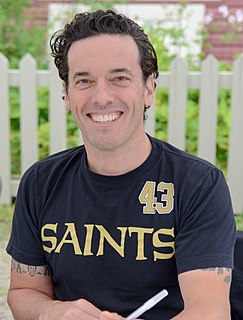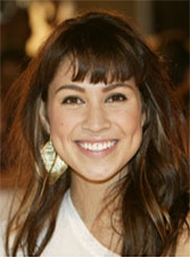A Quote by Matthew Pearl
As a writer of historical fiction, I believe you don't want to fictionalize gratuitously; you want the fictional aspects to prod and pressure the history into new and exciting reactions.
Related Quotes
Comedy is like fictional charm. It's the charm of fiction. Or the charisma of fiction. When you meet somebody who's immediately charismatic, you're attracted to that person. And in fiction it's got to come out in either one of two ways: in the prose itself, and you're hooked immediately because you never want to leave such a colorful and penetrating world. Or, it's simply being a funny writer.
What writers of fantasy, science fiction, and much historical fiction do for a living is different from what writers of so-called literary or other kinds of fiction do. The name of the game in F/SF/HF is creating fictional worlds and then telling particular stories set in those worlds. If you're doing it right, then the reader, coming to the end of the story, will say, "Hey, wait a minute, there are so many other stories that could be told in this universe!" And that's how we get the sprawling, coherent fictional universes that fandom is all about.
When I got the opportunity to do the new wing [the Schauhaus] for the German Historical Museum, for instance, I didn't see it as an opportunity for my own ego, to do something so exciting that every architectural publication would want to put it on the cover. I accepted it because I knew it was going to be a very difficult project, and I wasn't sure I could do something exciting there.






































